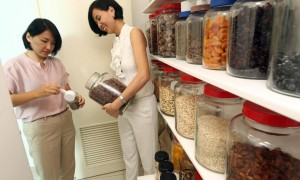“My son is two years old. Some of my friends have started sending their children of the same age to enrichment centres. Should I do the same?” The young mother asked earnestly. She had arrived early for my talk and listened attentively. A few times, I saw her nodding as I made some pertinent points during the 45-minute session. The audience were employees of a major organisation. The event was held at the end of a working day. By the time it was over, night had fallen.
Every parent wants their child to do well in life. Every parent wants their child to be successful. But it would seem to some parents that doing well and becoming successful require sending children at an increasingly younger age to enrichment and tuition centres, where they learn how to read, write, do arithmetic and a host of other tasks.
Enrichment centres pride themselves in different things. One I found online offers activities that it claims “stimulate self-esteem and self-confidence for infants six to 12 months”. Another offers speech and drama, music, presentation and performing skills. Yet another centre promises lessons in creativity.
From the photos, the classes appear to be structured, with tables and chairs so these children could perform. Are these claims grounded in truth? Do these enrichment centres deliver their promises? To be honest, many parents I meet are ambitious, in the sense that they want their kids to be competitive, to be first in class, to have that drive to excel. Which may not be necessarily a bad thing; but when do you start? How do you know the time is right for your child to begin? Is there such a thing as the best time?
Perhaps we need to pause and see where we are going in the long run. What are you trying to achieve? What are your hopes and dreams for your child ten years from now? Twenty years from now? Do you have a role model you want your child to emulate? Every child has a unique journey in life. How confident are you that that role model’s journey fits that of your child’s?
I often feel troubled when I see or hear young children being placed in what I deem as an unnatural setting. By unnatural I mean, walled up classrooms with tables, chairs and whiteboard. Don’t get me wrong. I’m not saying stimulation is not good for children. Young children do need stimulation to grow. But what kind of stimulation is best for them?
During my recent trips to Australia, Japan and Europe (Holland, Germany, Belgium, Norway, Luxembourg and Finland to be exact), I had the privilege of seeing firsthand, how young children in nurseries get their daily dose of stimulation. Mind you, all these are rich countries considered developed in terms of education and international achievements, and tops in children’s well-being. These are countries where children look forward to going to school.
Consider:
In the Netherlands, the little country that is producing large amounts of food for the rest of the world, children are not expected to do any serious reading, writing and math until the age of six or seven. The Netherlands is where ultramodern farmers sit atop their powerful machines with computers that tell them exactly which seedling needs how much water and nutrients, and when. The Netherlands is where the we get our onions, tomatoes and potatoes from. This country is also home to the stunning Keukenhof festival; the eight-week annual flower show in Amsterdam that has attracted millions of visitors from across the world, bringing in more wealth to an already wealthy nation. Read the report by National Geographic.
In Finland, particularly, little children literally play outside almost all day long, in touch with nature, throwing and kicking balls, rolling on earth or sand, smelling leaves, breathing fresh air, climbing trees or wooden structures on playgrounds. Young children connect with nature, family and friends – even in snowy weather.Finland’s exports include: electrical and optical equipment; paper and pulp; transport machinery; timber; and more recently, the concept of future schools as a result of Finland’s fame as the country with a top education system in the world.
Ditto in Norway. Children in Norway are not expected to read, write and do arithmetic till the age of six. When I was in Norway, it was literally daylight all day and night long; the kids of the family I visited only came in when their parents asked them, so they could have dinner before prayer and bedtime. Norway’s export products include: oil and mineral fuels; machinery including computers; fish; aluminium; optical, technical and medical equipment; iron and steel.
How about Germany? Germany is famous for heavy machinery and leading automobiles – Audi, BMW, Volkswagen, Mercedes-Benz, which speaks volumes for their advancements in technology. A visit to a museum showed that German children are exposed to creativity in technology at an early age by way of toys that resemble the real thing. Plus, they play a lot outside, too. Kindergarten is a time for play and making friends. Reading and writing are kept till later at grade school.
Raised in a competitive background myself, I found it hard at first to decipher the seeming lack of competition in these countries. I asked a Norwegian parent, “If there is no competition, what motivates these children to excel? How could a non-competitive environment produce outstanding scientists, engineers and innovators?”
The answer seems simple enough. “The youths who are genuinely interested in those fields eventually will get into them and therefore, excel.” In other words, they do get competitive, but later in life, in areas of their own choosing. Not when they are too young to choose, and when they have little idea of the importance of these things.
I’m not saying you should not expose your children to reading, writing, or arithmetic early on. I began reading to all my children when they were infants. Each time they wanted to breastfeed, I would take a book and read to them. I found this a satisfying way to bond with them. And I did have a whiteboard and marker pens for them to scribble whenever they wanted to. But this is something they do by and by, together with going out and playing on the patio or park whenever they wanted, with supervision. Free play is crucial for young children. The evidence is free for all to see.
I fail to find a connection between a rigid learning environment and success of either the individual or a nation in the long term. From a happiness and well-being point of view, would a two-year-old be happy to be awakened from slumber at seven in the morning so he could complete yet another day of self-mastery? Does it make your child any smarter? Would that make them any happier or more successful as an adult compared to their peers? Speaking of which, did you know that talking to your child is one of the best things you could do to stimulate his brain and feed him the 30,000 words he needs to hear?









